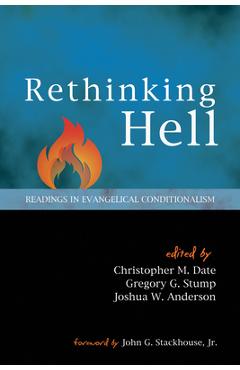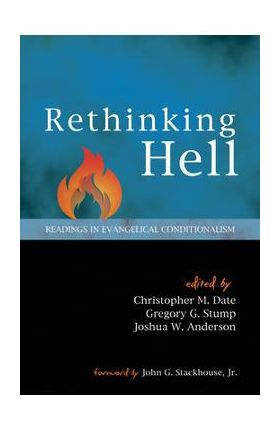Cosul este gol

Rethinking Hell: Readings in Evangelical Conditionalism - Christopher M. Date
Comparati
Codul produsului: 31222212
Conectează-te ca să te putem notifica când primești un răspuns
Most evangelical Christians believe that those people who are not saved before they die will be punished in hell forever. But is this what the Bible truly teaches? Do Christians need to rethink their understanding of hell? In the late twentieth century, a growing number of evangelical theologians, biblical scholars, and philosophers began to reject the traditional doctrine of eternal conscious torment in hell in favor of a minority theological perspective called conditional immortality. This view contends that the unsaved are resurrected to face divine judgment, just as Christians have always believed, but due to the fact that immortality is only given to those who are in Christ, the unsaved do not exist forever in hell. Instead, they face the punishment of the second death--an end to their conscious existence. This volume brings together excerpts from a variety of well-respected evangelical thinkers, including John Stott, John Wenham, and E. Earl Ellis, as they articulate the biblical, theological, and philosophical arguments for conditionalism. These readings will give thoughtful Christians strong evidence that there are indeed compelling reasons for rethinking hell. As more and more people open their minds to rethink the doctrine of final punishment, this book will be a valuable resource and reference. I wish it had been available when I did my own research. This volume is extensive, inclusive, and impressive in scope and approach. I am delighted to endorse it! A book for our time, it should enjoy great success. --Edward Fudge, author of The Fire That Consumes This volume is to be welcomed and recommended for its usefulness in gathering together some of the most significant contributions from leading scholars and preachers who question whether the eternal conscious punishment of the wicked is a correct interpretation of the biblical teaching. --I. Howard Marshall, Professor Emeritus of New Testament, University of Aberdeen, Scotland Because the case for annihilationism is generally not well understood, this expertly chosen selection from often difficult to find writings, along with helpful introductory essays, will be immensely valuable to the church. Everyone, regardless of their current understanding, can welcome this historical and biblical resource that will make fruitful dialogue more possible than ever. --Terrance Tiessen, Professor Emeritus of Systematic Theology and Ethics, Providence Theological Seminary, Colorado Those who read th


